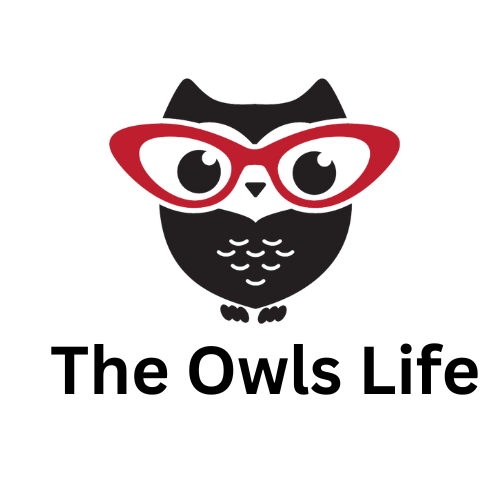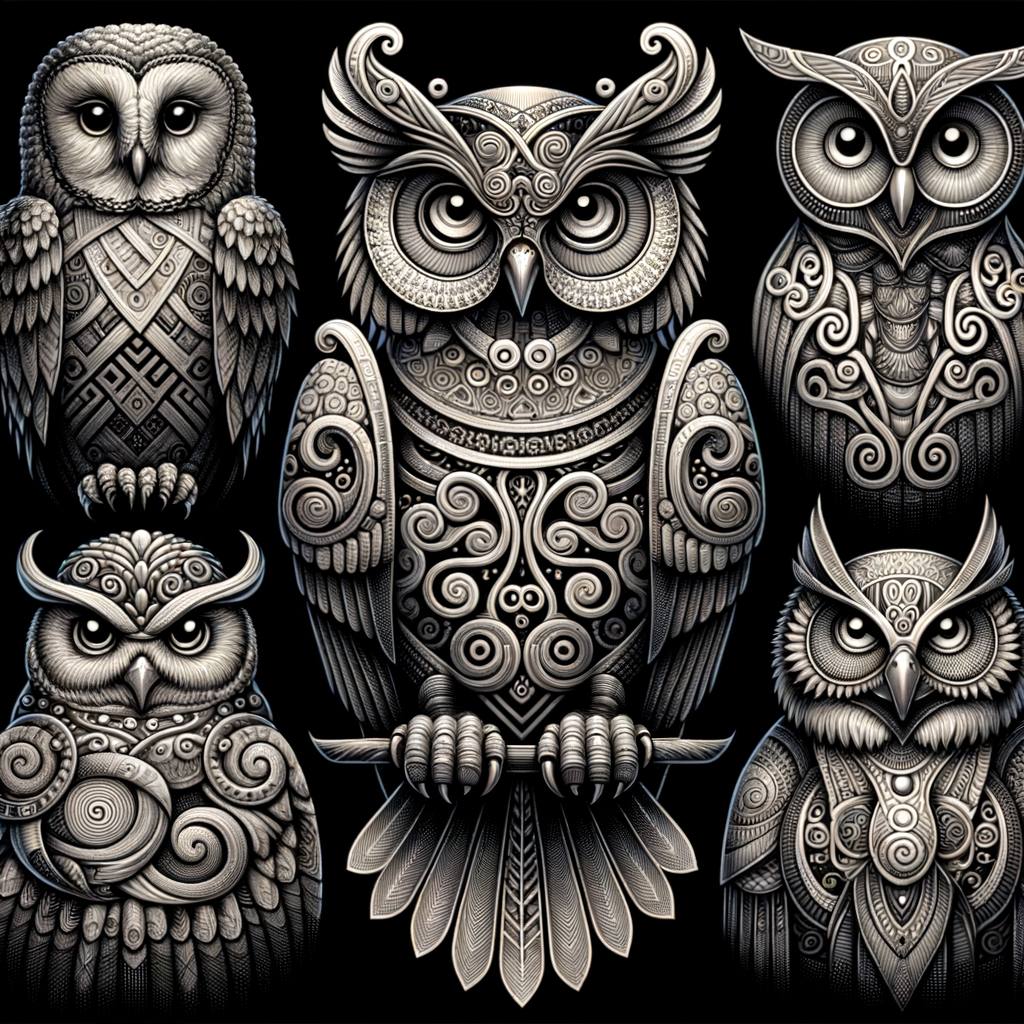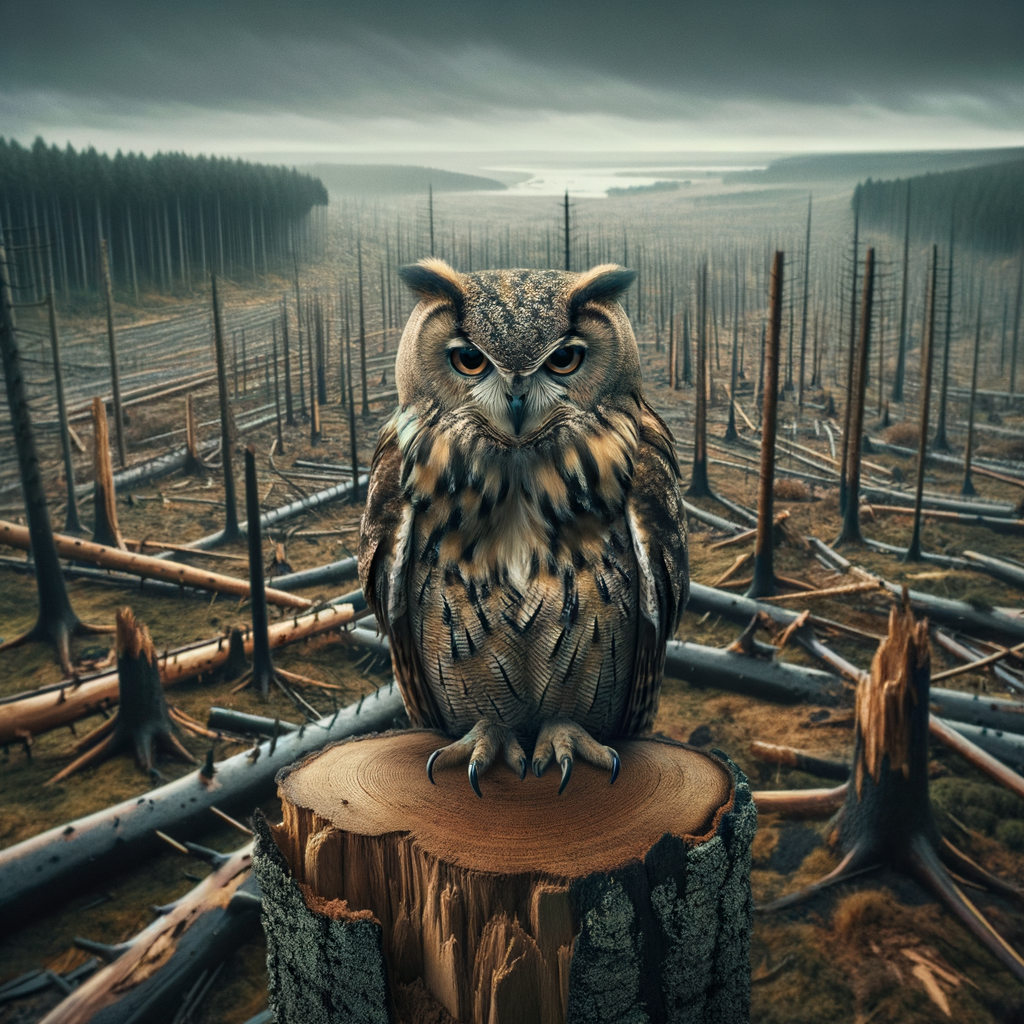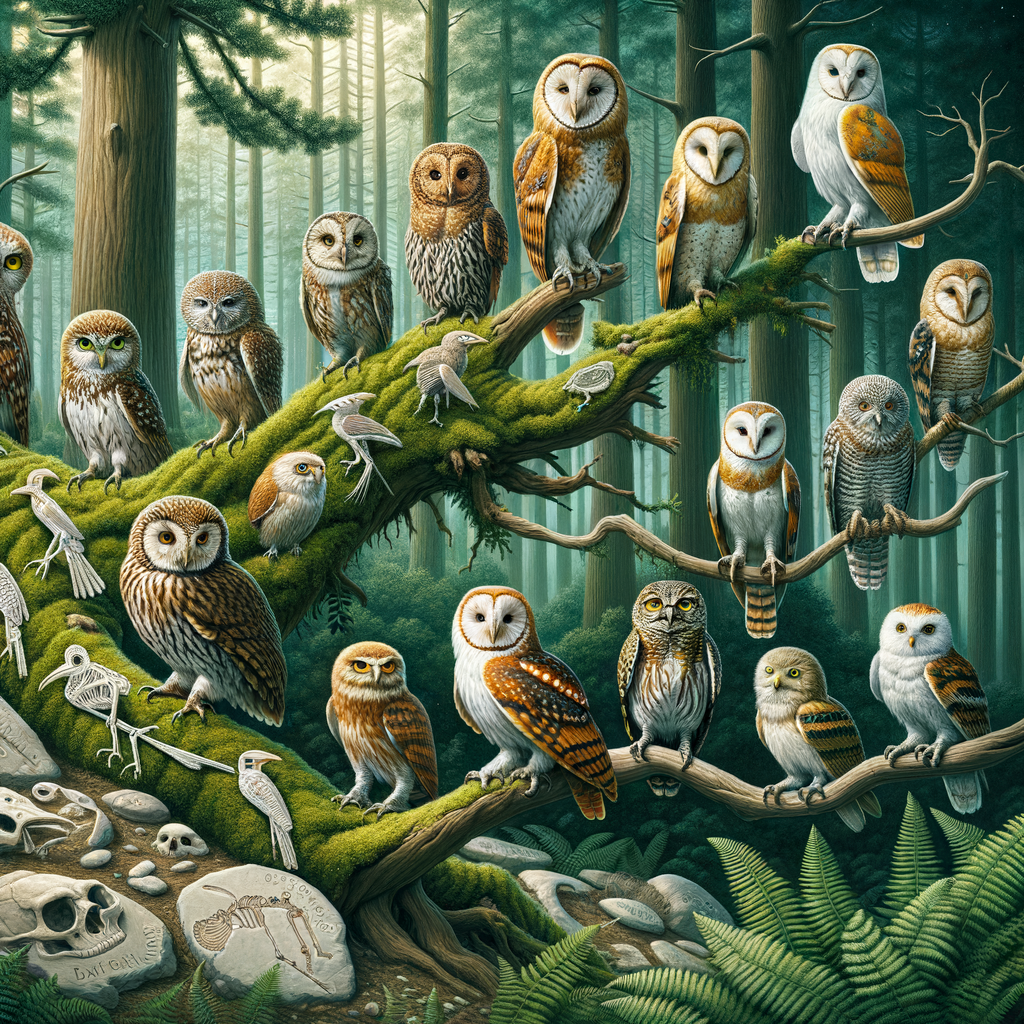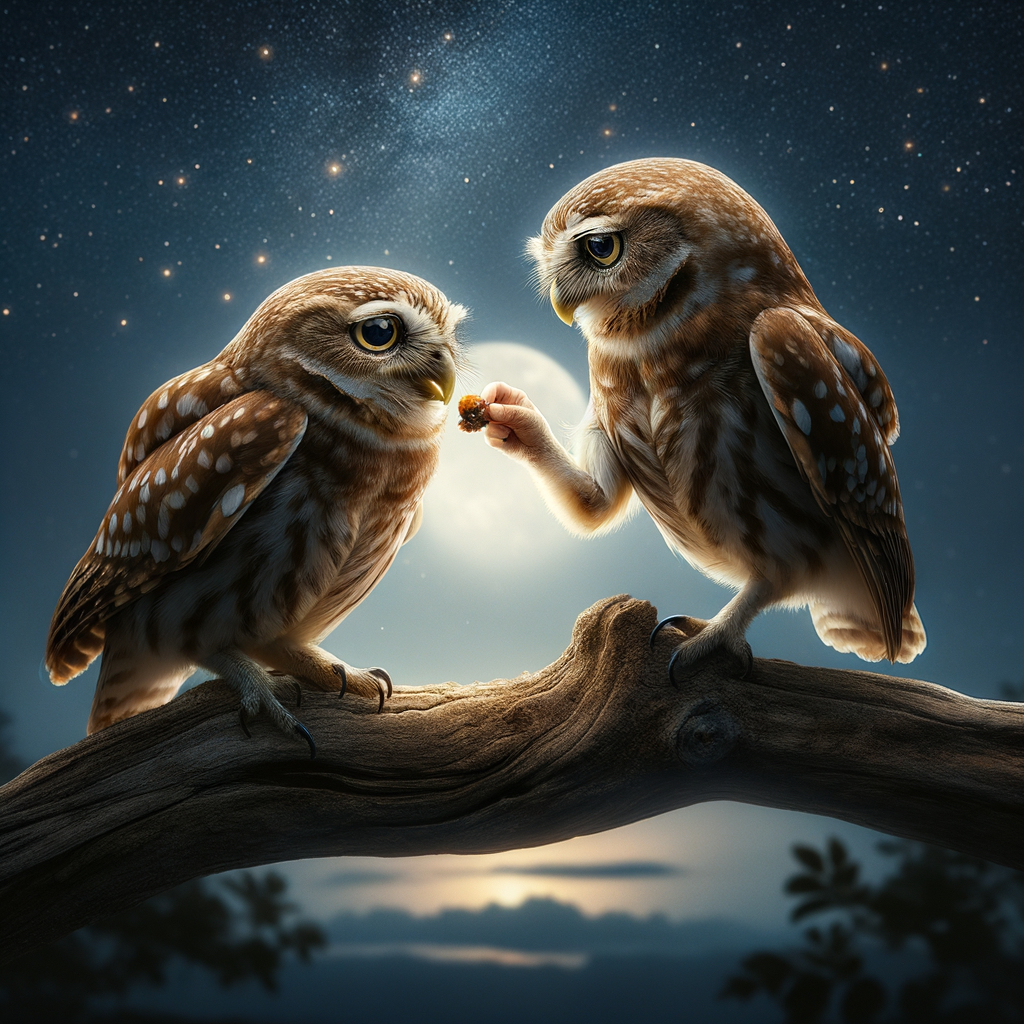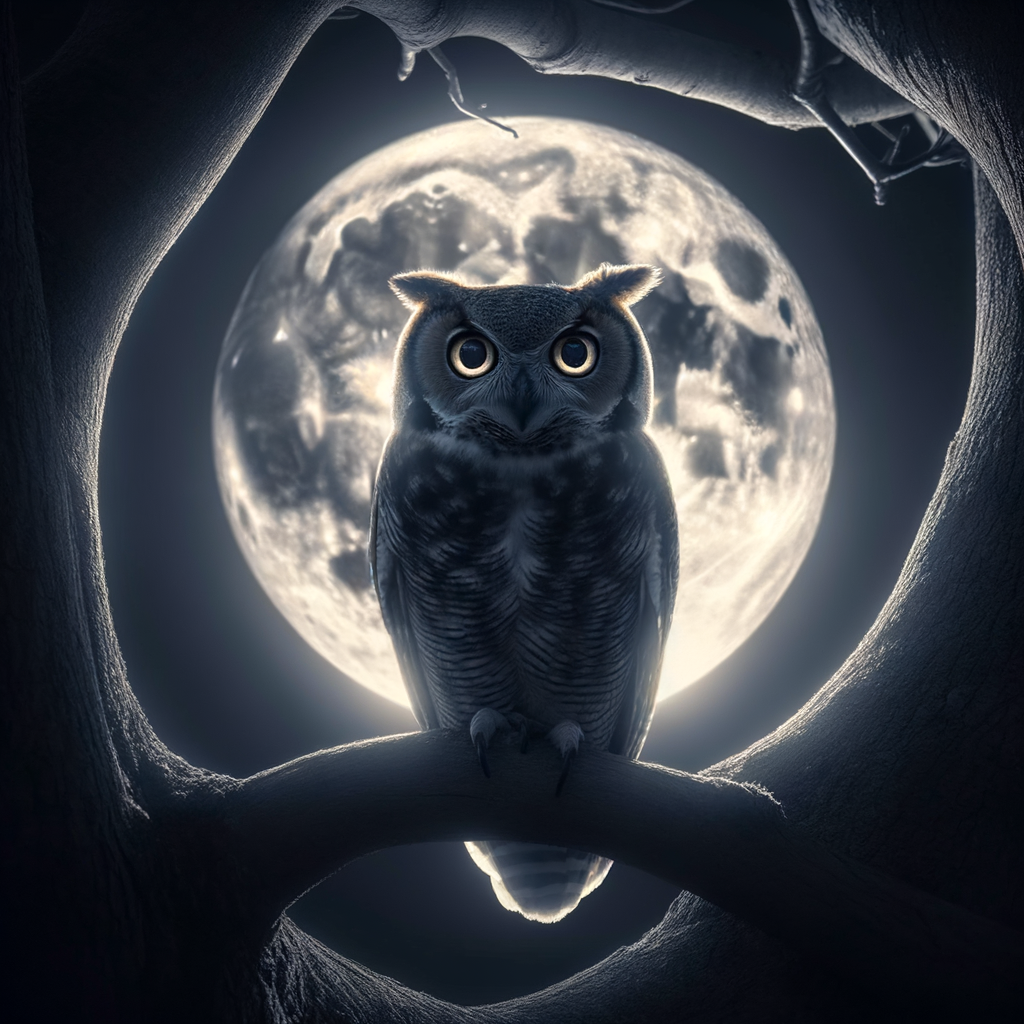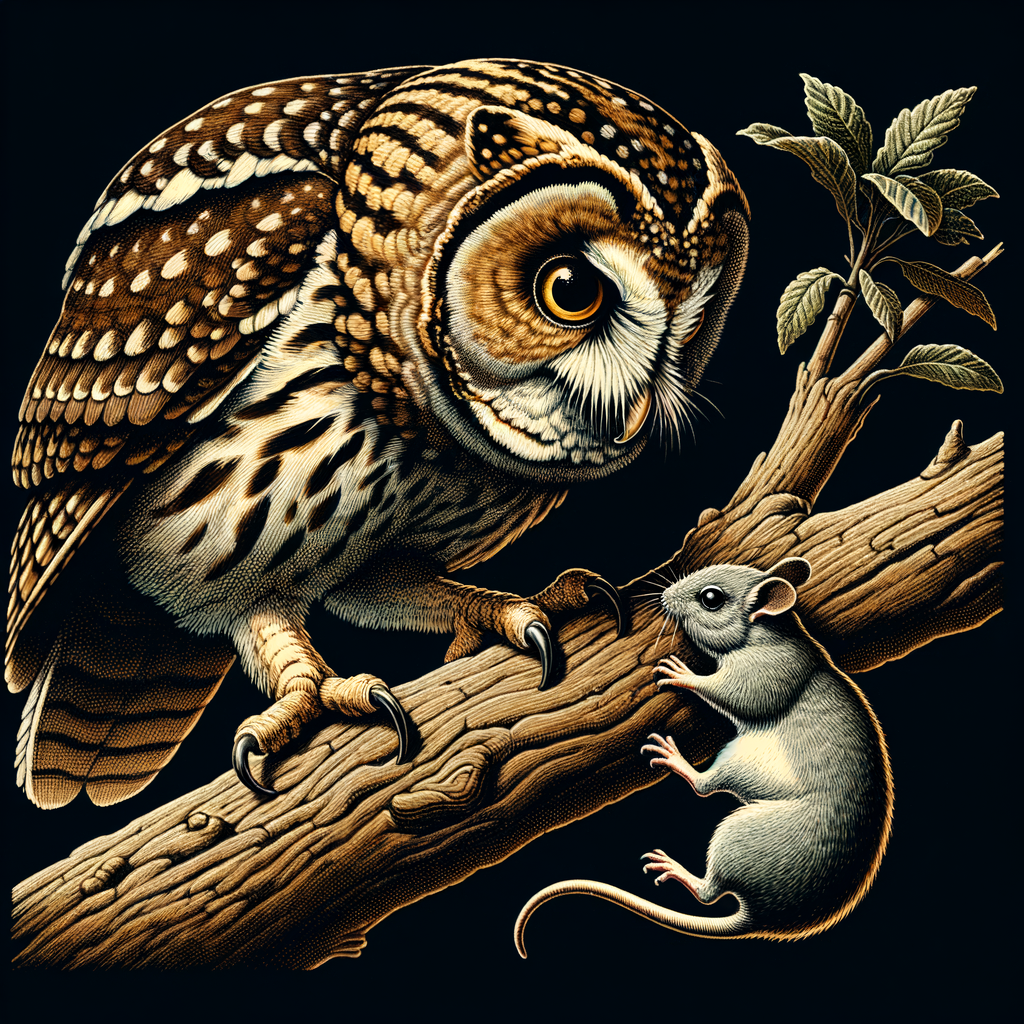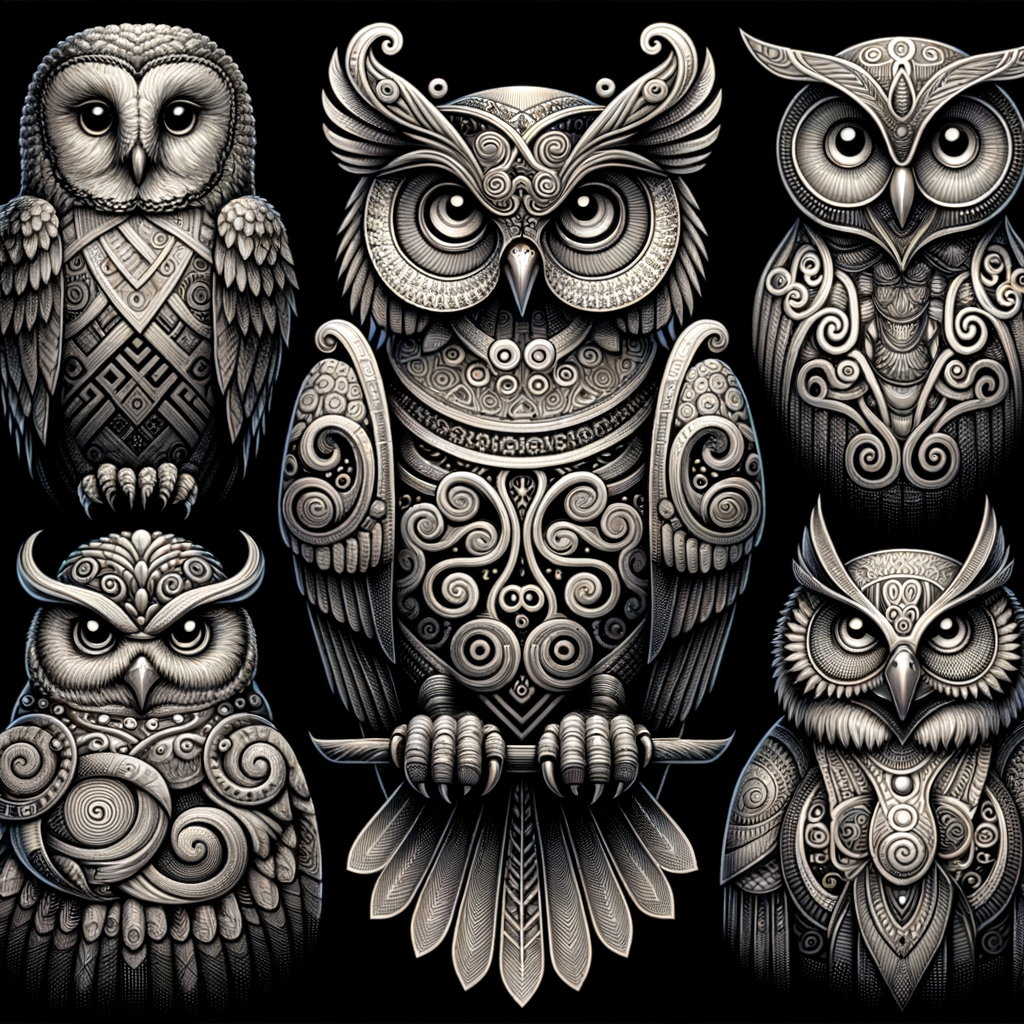
The Mythology of Owls in Different Cultures: An Introduction
Owls have always fascinated people. These birds are often seen as mysterious and wise. Many cultures have stories and myths about owls. In this section, we will look at why owls are important in different cultures.
- The cultural significance of owls: Owls appear in many myths and legends. They are often seen as symbols of wisdom, mystery, and change. Some cultures see them as protectors, while others think they bring bad luck.
- Overview of owl symbolism across the globe: Owls have different meanings in different parts of the world. For example, in ancient Greece, owls were linked to Athena, the goddess of wisdom. In some Native American tribes, owls are seen as guardians of sacred knowledge. In Japan, owls are considered lucky and bring good fortune.
Owl Symbolism: A General Overview
- Common themes in owl symbolism: Owls are often seen as symbols of wisdom and knowledge. Many cultures believe that owls have a deep connection to the spiritual world. They are also linked to mystery and magic because of their nocturnal nature.
- Contrasting interpretations of owls: While some cultures view owls positively, others see them as omens of bad luck or death. For example, in ancient Rome, owls were considered harbingers of doom. In contrast, Native American tribes often see owls as protectors and guides.
Cultural Beliefs about Owls: A Global Perspective
Owls in Native American Culture
-
The spiritual meaning of owls in Native American mythology:
They are often believed to carry messages from the spirit world. Some tribes think of owls as protectors, while others see them as omens.
-
Examples of owl folklore in Native American tribes:
The Hopi tribe has a legend about the “Ko’ko,” a great horned owl that teaches people to be wise and patient. The Apache tribe believes that dreaming of an owl means you will receive important news. In Cherokee folklore, owls are often associated with witches and are thought to have special powers.
Owls in Greek Mythology
-
The role of owls in ancient Greek myths:
Owls were seen as symbols of wisdom and knowledge. They were often associated with the goddess Athena, who was the goddess of wisdom and war. Owls were believed to have the ability to see what others could not, making them symbols of insight and foresight.
-
Symbolism of the owl in Athena’s iconography:
This bird was considered sacred to her. The owl symbolized her ability to see the truth and make wise decisions. In many ancient artworks, Athena is shown with an owl perched on her shoulder or nearby, highlighting the bird’s importance in her mythology.
| Aspect | Details |
|---|---|
| Role in Myths | Symbols of wisdom and knowledge, associated with Athena |
| Athena’s Iconography | Owl depicted with Athena, symbolizing insight and wisdom |
According to Wikipedia, Athena was not only a goddess of wisdom but also of war and strategy. The owl’s presence in her iconography underscores its significance in Greek culture.
Owls in Egyptian Mythology
- Significance of the owl in Egyptian hieroglyphicsThe owl symbol, known as “m,” represented the sound “m” in their writing system. This bird was seen as a symbol of wisdom and protection. Egyptians believed that owls could see what others could not, making them guardians of the night.
- The owl in the mythology of ancient EgyptThey were associated with the goddess of wisdom and knowledge, Athena. Egyptians thought that owls had the power to protect the dead and guide them safely to the afterlife. This belief made the owl a revered creature in their culture.
Owls in Celtic Mythology
- The owl as a symbol of wisdom and knowledge in Celtic cultureOften seen as a symbol of wisdom and knowledge. The Celts believed that owls had the ability to see what others could not. This made them powerful symbols of insight and understanding. Owls were thought to guide people through dark times, offering wisdom when it was most needed.
According to Celtic mythology, the owl’s keen vision and silent flight were seen as signs of its deep knowledge. The Celts respected the owl for its ability to navigate the night and uncover hidden truths.
- Myths and legends involving owls in Celtic folkloreOne popular story tells of an owl named Blodeuwedd. She was created from flowers by a magician to be the wife of a warrior. However, Blodeuwedd fell in love with another man and turned into an owl as punishment. This tale highlights the owl’s connection to transformation and mystery.
Another legend speaks of the owl as a guardian of the underworld. The Celts believed that owls could travel between the world of the living and the dead. This made them important figures in rituals and ceremonies related to death and rebirth.
Exploring Owl Myths: Case Studies
-
Case study: The Owl of Minerva in Greek mythology
In Greek mythology, the owl is closely linked to Athena, the goddess of wisdom and war. The Owl of Minerva represents knowledge and insight. According to myths, Athena’s owl would sit on her shoulder and reveal truths to her. This made the owl a symbol of wisdom and learning. The phrase “The Owl of Minerva spreads its wings only with the falling of the dusk” suggests that wisdom comes with age and experience.
Many ancient Greek coins featured the owl, showing its importance in their culture. The owl was not just a bird but a powerful symbol of intelligence and protection.
-
Case study: The Owl as a guide in Native American folklore
In Native American folklore, the owl is often seen as a guide and protector. Different tribes have various beliefs about owls. For example, the Hopi tribe believes that owls are messengers and can bring warnings. They see the owl as a guide through difficult times.
Some tribes, like the Cherokee, view the owl as a symbol of death and rebirth. They believe that owls can see what others cannot and guide souls to the afterlife. This duality shows the owl’s complex role in Native American culture.
Overall, the owl is a respected and significant figure in many Native American stories, symbolizing guidance, protection, and deeper understanding.
Key Takeaways: The Impact of Owl Symbolism in Cultures
-
The universal themes in owl mythology:
Owls are often seen as symbols of wisdom and mystery. In many cultures, they are thought to have special knowledge. For example, in Greek mythology, the owl is linked to Athena, the goddess of wisdom. This shows how owls are connected to learning and intelligence across different societies.
-
How cultural beliefs about owls shape societal attitudes:
Cultural beliefs about owls can influence how people think and act. In some cultures, owls are seen as protectors, while in others, they are viewed with fear. For instance, in Native American traditions, owls are often seen as guardians of sacred knowledge. On the other hand, in some parts of Africa, owls are sometimes associated with bad luck. These beliefs can affect how people treat owls and how they understand their environment.
Conclusion: The Enduring Mythology of Owls
-
Recap of the cultural significance of owls
Owls have been a part of human stories and beliefs for many years. They are seen as wise and mysterious creatures. In some cultures, owls are symbols of wisdom and knowledge. In others, they are linked to magic and the unknown. This shows how much people value and respect these birds.
-
Final thoughts on the mythology of owls in different cultures
The mythology of owls is rich and varied. From the wise owl of ancient Greece to the magical owl in Native American tales, these birds have captured our imaginations. They remind us of the mysteries of the night and the unknown. Owls will continue to be a part of our stories and beliefs for many years to come.
| Culture | Owl Symbolism |
|---|---|
| Ancient Greece | Wisdom and Knowledge |
| Native American | Magic and Mystery |
| Hindu | Prosperity and Wealth |
| Medieval Europe | Omens and Warnings |
The mythology of owls is a testament to their enduring presence in human culture. They are more than just birds; they are symbols that carry deep meanings. As we continue to learn more about these fascinating creatures, their myths and stories will keep inspiring us.
